Featured Montanan
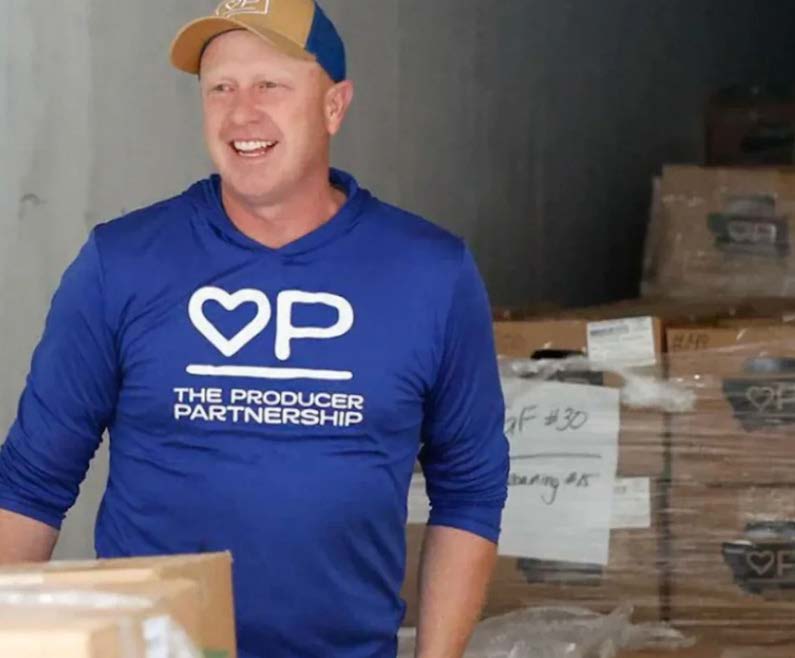
Photo: Proof Marketing;
Matt Pierson and The Producer Partnership
According to the Montana Food Bank Network (MFBN), one in 12 people and 28,400 children face food insecurity or hunger in Montana. Food insecurity is the inability to access food consistently — this lack of consistency results in reduced quality of food, lack of nutrient-dense food, and hunger.
Hunger in a state devoted to agriculture may be hard to believe. Matt Pierson wanted
to create a way to connect the people producing food with Montanans facing food insecurity
to help end hunger in Montana.
This fifth-generation rancher and owner of Highland Livestock in Livingston has a
long history of community involvement, volunteering on boards and coaching for many
organizations, from Park County Stockgrowers to his local youth soccer league. He
combined his knowledge of nonprofits and ranching to create The Producer Partnership
in 2020.
On the Mountain & Prairie podcast, Pierson said, “We just want to do what’s right and do it in the best way possible. And I am really adamant that this whole project, that everything that we can prove, that there are better ways to do things, that we don’t have to deal with status quo that’s not good enough. You know when you have that mentality, people want to be a part of it.”
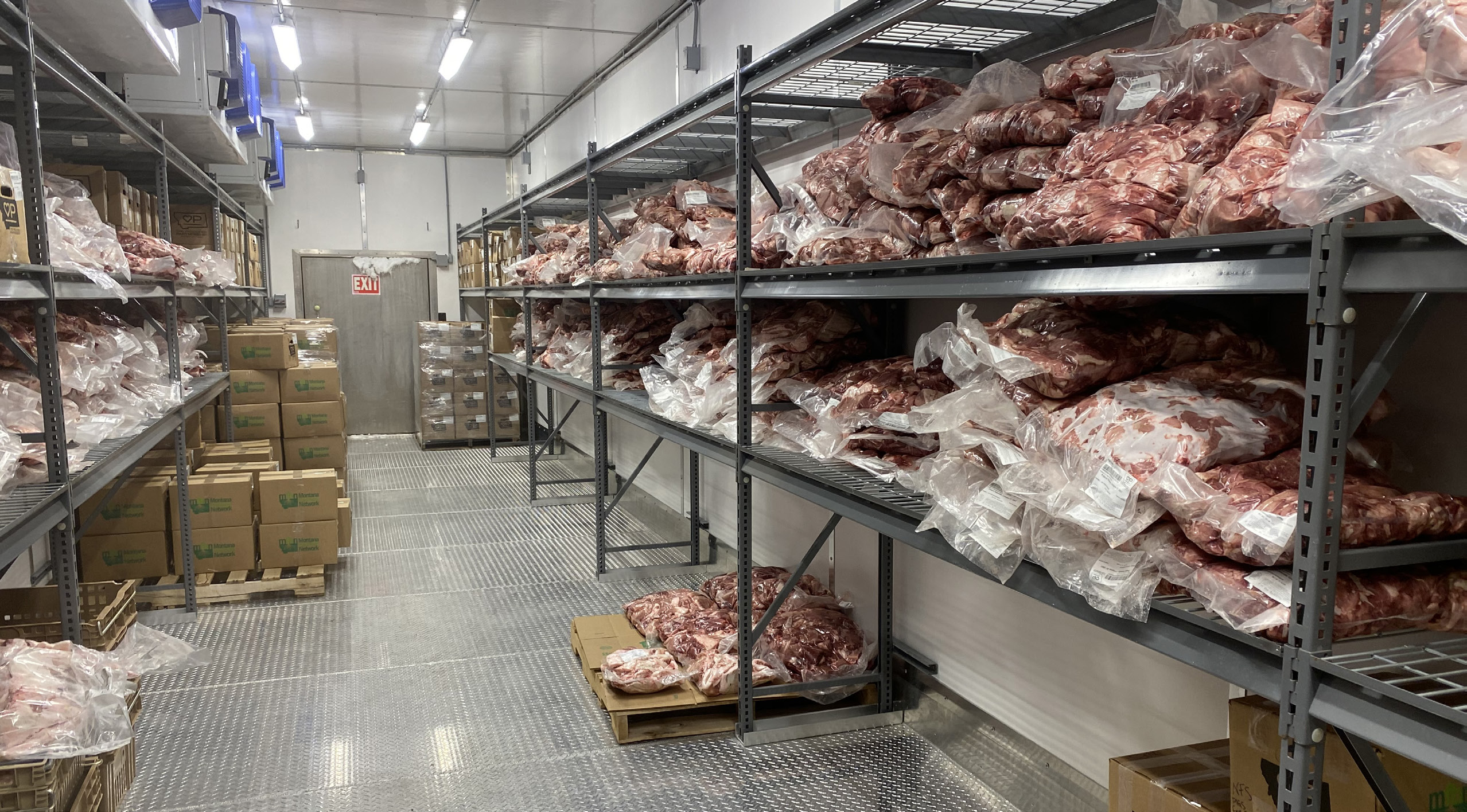
Photo: Matt Piersen
HOW DOES A MEAT PROCESSING FACILITY HELP COMMUNITIES BECOME MORE FOOD SECURE?
The Producer Partnership is the only federally inspected nonprofit meat processing facility in Montana, and is the connecting link between livestock producers and food centers. Processed meats from the facility directly supply the MFBN with critical, nutrient-dense protein.
“All we do and all we wanted to do from day one was to help the people that are already doing the work. It was to provide them with high-quality, Montana-grown product that they could hand out to the people they are already working with,” said Pierson on the Mountain & Prairie podcast.
The modular facility and grounds were designed with care, from low-stress animal handling environments to a systematic layout for the employees to navigate safely. The Producer Partnership is so tied into the MFBN that its freezer was built around the size of boxes and pallets that fit food bank shelves. This thoughtful design helps increase efficiency by reducing extra handling.
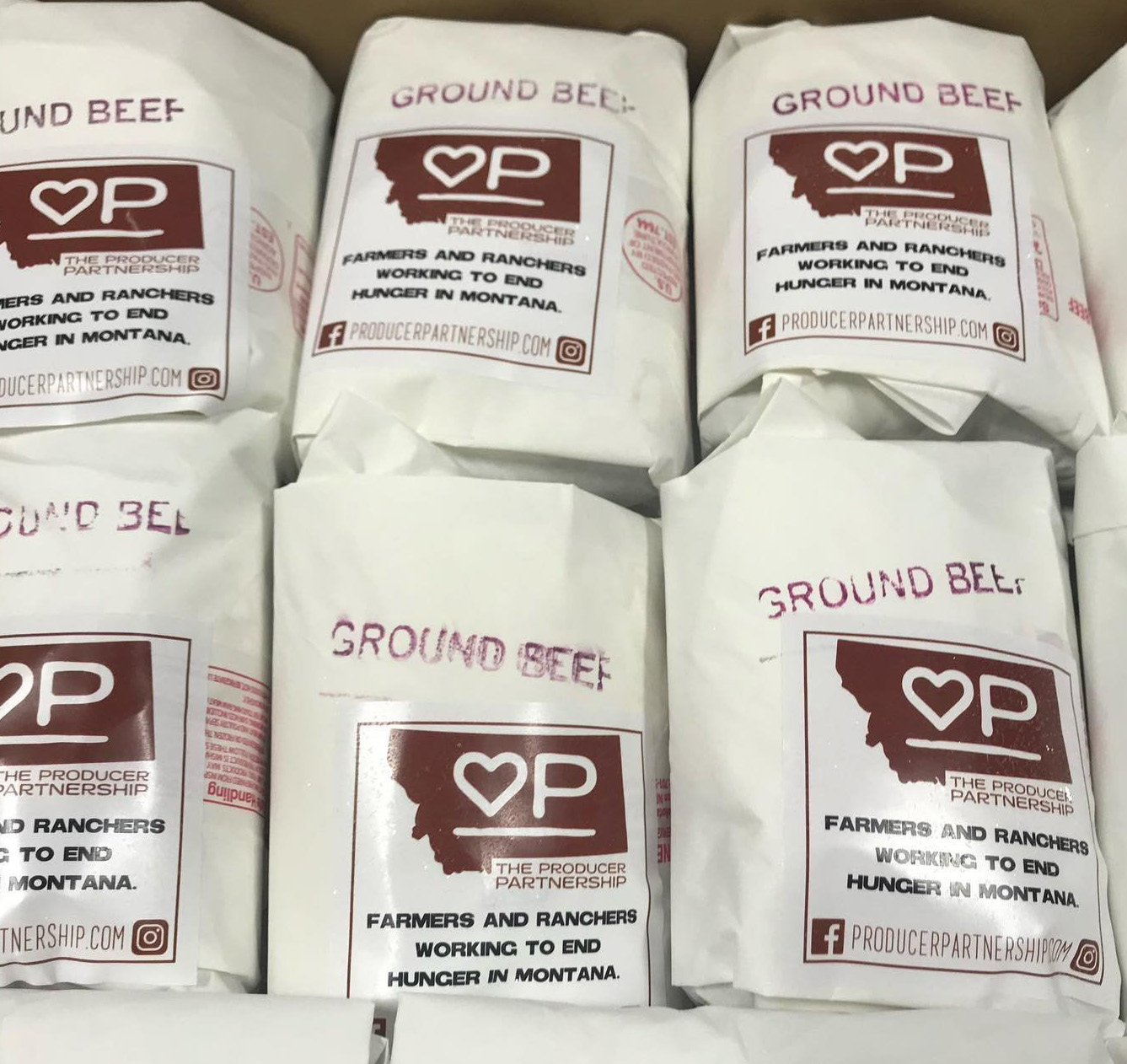
Photo: Matt Pierson
Donations like meat are scarce for food banks, and it goes quickly from the shelves. Since The Producer Partnership opened its doors, 250,000 pounds of meat has been donated to the MFBN, schools, and other charities.
HOW DOES THE PRODUCER PARTNERSHIP WORK?
The Producer Partnership receives donated animals from producers, processes them into protein, and distributes them to food centers through a three-step process:
- A producer selects an animal(s) and contacts The Producer Partnership to see if the animal meets the health and condition criteria. This can be a non-calf-producing heifer, an injured animal, or a retiring cow or bull.
- The Producer Partnership coordinates the transport of the animal to their facility. The animal is processed into protein, and The Producer Partnership pays the bill.
- The Producer Partnership contacts the MFBN for delivery. The producer who donated
the animal receives a tax contribution letter to claim their tax credit based on the
amount of protein processed.
According to Pierson, “Montana has always been an amazing state for change. Neighbors helping neighbors is at the heart of what makes the Big Sky country great. The Producer Partnership is built around these ideals, and will continue to grow with that in mind moving forward.”
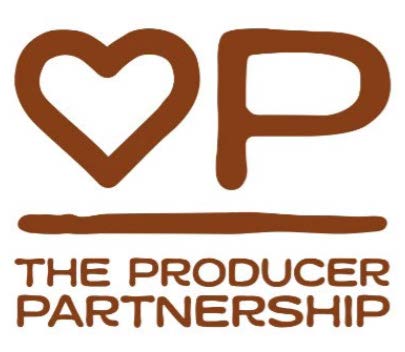
In the near future, The Producer Partnership will expand its partnerships to include the Miles Community College meat processing school. Students learning meat processing can live on-site, take classes, and get hands-on work experience in a federally inspected processing unit while also giving back to Montanans.
Mutually beneficial partnerships like these help livestock producers gain tools to increase sustainability, students gain experience, and food banks gain nutritious food, all helping to end hunger in Montana while supporting communities.
Interested in learning more about the facility, donating livestock, volunteering, or signing up for a newsletter? Contact the Producer Partnership (producerpartnership.com).
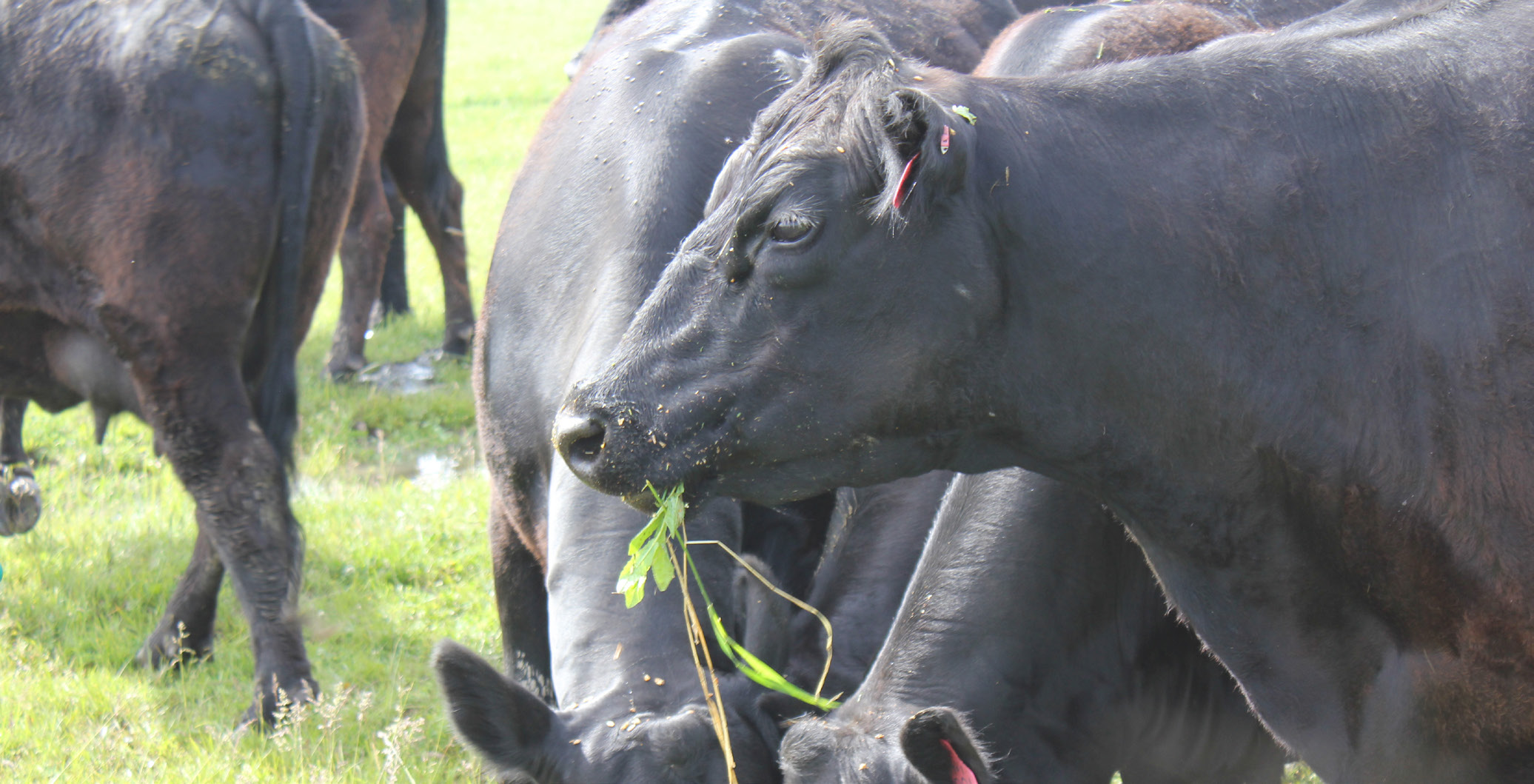
Photo: Rene Kittle, MSU Extension
Erika Malo is the MSU Extension External Relations and Social Media Coordinator.
